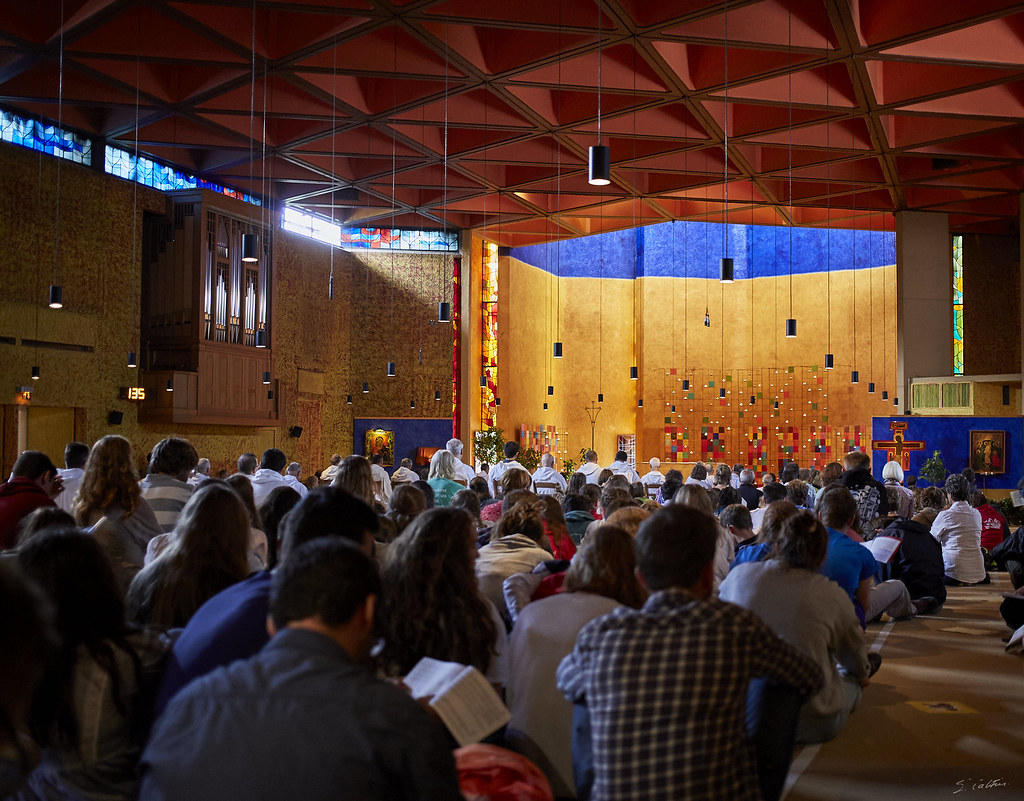
Taizé, an ecumenical monastic community in France with a worldwide following of young Christians, has changed in recent years, addressing issues surrounding immigration in Europe, the pandemic, and clerical sex abuse, reports Stephanie Saldana in the Jesuit magazine America (February). Taizé was started during World War II by Protestants seeking the monastic life and church unity and reconciliation, and gradually attracted hundreds of thousands of young people who would flock to the French monastery for prayer and worship services. The community’s songs, chants and prayers were adapted by churches around the world. Saldana writes that in recent years Taizé has also reached out to migrants in Europe, sheltered Muslim, Yazidi, and Christian refugees escaping war, engaged in dialogue with Muslims, and led workshops on the climate crisis. The pandemic has also affected much of the Taizé community’s activities.
During the lockdown in France, the Taizé brothers separated into pods, living and praying in small groups, and broadcast their prayers online to Christians isolated around the world. During a second lockdown, the brothers invited students studying online at home to come stay at the community to ward off isolation. Taizé has also become active on the clerical sexual abuse crisis, not least because of the community’s own experience with alleged abusers among its brothers. The community had learned of five cases of alleged sexual assault by brothers occurring between 1950 and 1980; two of the brothers involved had died and one had left the group before the accusations came to light, while the other two were reported to authorities and left the community. The community took a strong position on transparency and ministry to survivors, not only those victimized by the brothers but by other clerics in churches around the world, especially during revelations of abuse in the Catholic Church in France. The brothers have continued to speak out to youth, leading them in prayer and discussion of abuse and topics such as clericalism and celibacy, as well as to each other and to the press. One brother said that the decision to speak openly on these issues had salvaged the trust of young people.

Church of Reconciliation – Brothers Community of Taizé (Emmanuel Cattier | Flickr).
(America, https://www.americamagazine.org/)